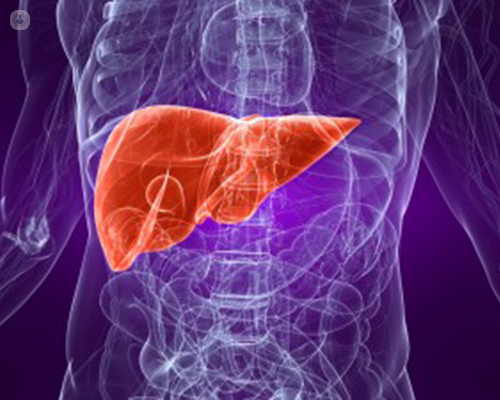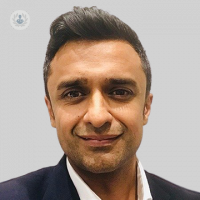What is primary sclerosing cholangitis (PSC) and how is it treated?
Written by:Primary sclerosing cholangitis (PSC) is an uncommon chronic liver disease that is characterised by inflammation and scarring of the bile ducts. There is a strong association of PSC with inflammatory bowel disease (IBD) and most commonly, ulcerative colitis. It is unclear what causes PSC although it is considered to be an autoimmune condition (i.e. the body attacks itself). It affects men more than women and usually occurs in younger patients (less than 40 years of age). Dr Deepak Joshi, an expert hepatologist (liver specialist) gives us an insight into a lesser known type of liver disease.

What are the symptoms?
Initially a lot of patients with primary sclerosing cholangitis have no symptoms. PSC is commonly diagnosed as a result of abnormal liver function tests, especially in patients with known IBD. Early symptoms can include tiredness. Symptoms suggestive of advanced disease include itch, jaundice (yellowing of the whites of the eyes and skin) and pain, especially in conjunction with a fever. PSC can eventually result in liver failure and the requirement for liver transplantation. Those with PSC also have an increased risk of developing a bile duct cancer (cholangiocarcinoma).
How do I make the diagnosis?
The diagnosis is made upon the combination of symptoms, liver blood tests and scans of the bile ducts. The most commonly performed scan is called a MRCP (magnetic resonance cholangio-pancreatogram). A liver biopsy is sometimes performed to confirm the diagnosis.
What treatment options are available?
Currently, there are no treatment options for PSC. Ursodeoxycholic acid is commonly used and can help improve bile flow and liver irritation. It can also help with itch. Other treatment options for itch include cholestyramine and rifampicin. Liver transplantation may be required in patients who develop liver failure.
Some patients may develop a narrowing in the bile ducts. This is usually treated with a specialised endoscopy called an ERCP (endoscopic retrograde cholangiopancreatogram). The strictures can be stretched using a balloon or a stent.
Primary sclerosing cholangitis is currently an important area of drug development and new medications are becoming available in clinical trials.
If you would like to learn more about PSC or other forms of liver disease, make an appointment with a specialist.


